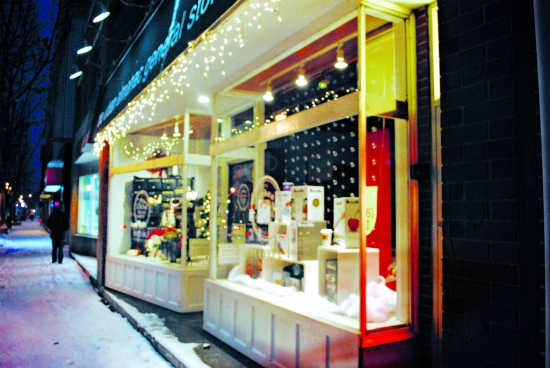UK retail sales fell suddenly in January, confounding economists’ hopes for a rise. The Office for National Statistics (ONS) said volumes fell 0.6 per cent from December 2012, as shoppers were deterred by heavy snowfall.

Snow is blamed for the fall in sales in January
The ONS highlighted weak sales in the food sector, which plummeted 2.6 per cent year-over-year to the lowest level since April 2004. It also said small stores had performed worse than large stores.
Smaller retailers in the food sector implied that the heavy snow seen in the second half of January had influenced sales. In contrast, larger retailers suggested that some of the growth they saw came from a rise in online sales.
The amount spent online accounted for 10.1 per cent of all retail spending, exclusive of fuel.
In the food sector, the percentage of online sales rose 27 per cent on the year. That meant that online sales now make up a record 3.7 per cent of all food sales.
The data for December, which had earlier shown a 0.1 per cent drop in monthly volumes, was also revised to show a sharper 0.3 per cent decline.
The ONS data had a direct impact on sterling, with the pound dropping by more than a cent against the dollar to $1.5477.
By value, retail sales fell by 0.4 per cent on the month and remained unchanged on the year.
The ONS said that sales at petrol stations were the main contributor to the fall in the amount spent. Analysts were dissatisfied with the figures.
Chief UK economist at Deutsche Bank, George Buckley, said: “If you define Christmas sales as the November to January period, this has been the second worst performance over the festive/sales period over the past 15 years”, adding that 2009-10 was the worst.
However he noted that other surveys had held up better. For example, the British Retail Consortium (BRC) has said that like-for-like retail sales in January increased 1.9 per cent compared with January 2012 – the biggest increase in over a year.
Buckley added: “Perhaps some of today’s weakness reflects higher inflation, which has risen by 0.5 percentage points over recent months.”
The retail data raises fears about the strength of the UK economy, which fell by 0.3 per cent in the fourth quarter of 2012.
Some experts already feared that it could weaken again in the first quarter of 2013, which would mean the UK would slip back into recession.
Rob Wood, economist at Berenberg Bank, said: “This probably brings the question of ‘triple-dip’ back on the table again.”
“If this is the sort of disruption we see from snow and it’s reflected in output in the rest of the economy, then it could be bad news for Q1,” he added.
However Chris Williamson from Markit said that while the snow had clearly had an effect on sales, the decline was not as harsh as that seen in previous years.
“For example, the 0.6% decline in January compared with a 1.9% monthly fall in December 2010, when the country was also hit by heavy snow,” said Williamson.
He further added: “The data therefore add to other survey evidence which suggests the economy got off fairly lightly from snow disruption, further allaying fears of a weather-related ‘triple-dip’ recession.”